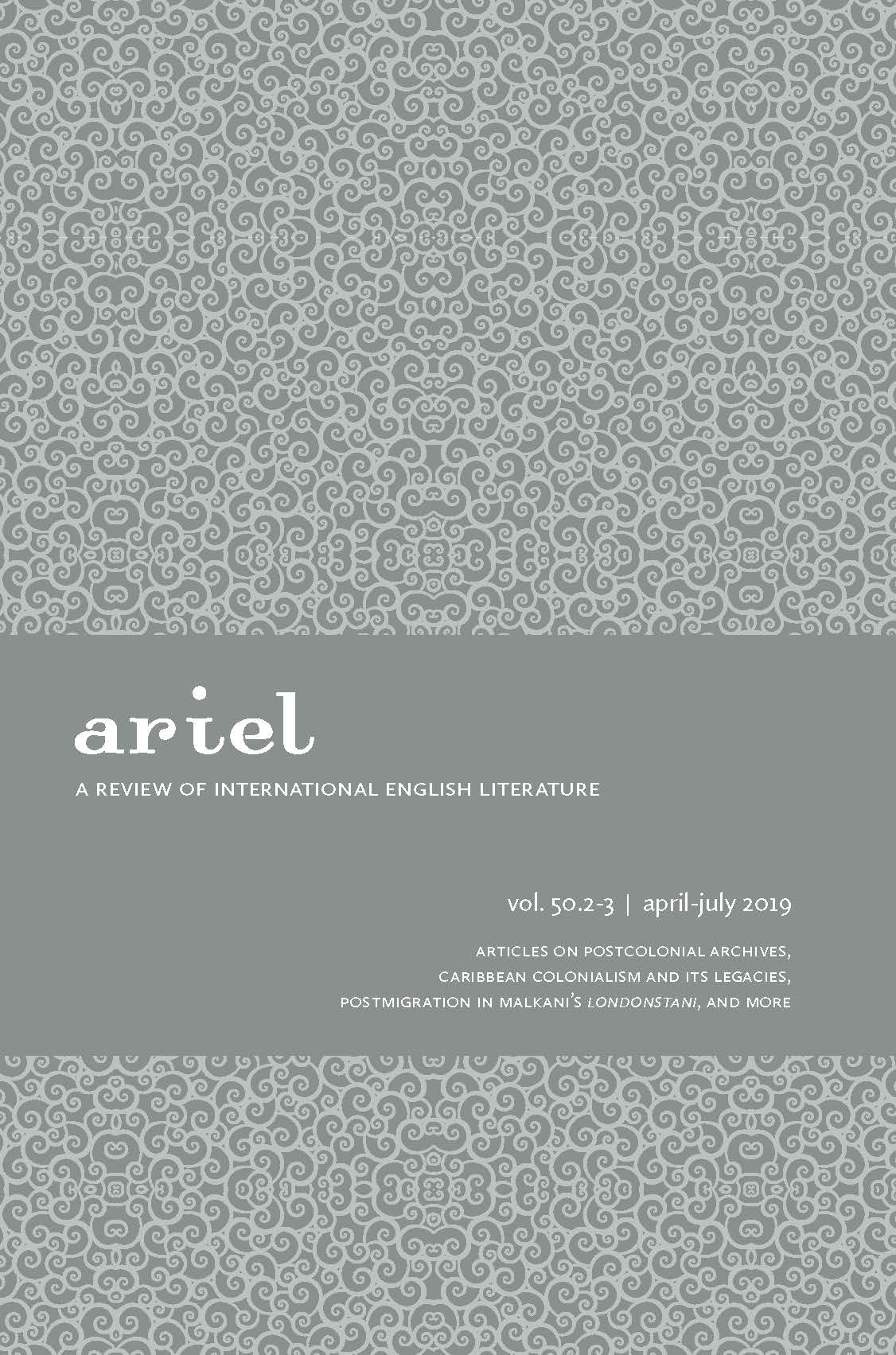Toxic Imperialism: Memory, Erasure, and Environmental Injustice in David Chariandy’s Soucouyant
Keywords:
David Chariandy, Soucouyant, toxic imperialism, memory and dementia, environmental justiceAbstract
Critical literature on David Chariandy’s Soucouyant has explored the dementia suffered by the protagonist’s mother Adele as a metaphor for the erasure of Black experience from cultural memory and dominant historical narratives, and as a response to the traumatic effects of imperialism. “Toxic Imperialism” builds on these critical insights, while mapping new critical terrain to argue that in Chariandy’s novel, dementia is both an effect and symptom of the multiple sites of chemical exposure that disproportionately impact low income communities of color. From Adele’s and Roger’s birthplace in Trinidad, to their home and work environments in Canada, the family’s multiple encounters with unequally borne byproducts of industrial production are inseparably linked to legacies of colonialism and racism. The analysis traces the roots of Adele’s trauma in environmental and cultural disruptions wrought by the U.S. military occupation of Trinidad during World War II, while also examining the novel’s critique of Canada’s discourse of neoliberal multiculturalism, and its relevance to Indigenous-Black solidarity to address racism, white supremacy, and injustices in Canada. In its attention to epistemologies of memory and multigenerational effects of (neo)colonialism, Soucouyant is a literary intervention in support of local and global decolonization struggles for social, environmental, and ecological justice.
Both authors contributed equally to this work.


